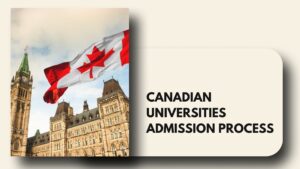- Most affordable MSc aerospace programmes start at £10,000 (₹11.8L) at universities like Teesside, making quality UK education accessible to international students.
- Aerospace engineering graduates face only 8.3% unemployment six months after completing their degree, demonstrating strong industry demand.
- MSc Aerospace Engineering programs in the UK are designed to be completed in just 12 months, which saves both time and tuition costs.
- Why Choose the UK for an MSc in Aerospace Engineering?
- Top 10 Universities Offering MSc in Aerospace Engineering in the UK
- Affordable Universities in the UK Offering MSc Aerospace Engineering
- Eligibility Criteria for MSc in Aeronautical Engineering in the UK
- Academic Curriculum for MSc in Aerospace Engineering in the UK
- Top Job Roles & Salaries After MS in Aerospace Engineering in the UK
- Cost of Living in the UK for Indian Students
- Key Takeaways by AdmitX
- FAQs

The UK aerospace sector represents a significant component of the British economy, employing over 100,000 people directly and generating £30.5bn in annual business turnover. The sector’s focus on sustainable aviation technologies and net-zero emissions by 2050 has created new opportunities for qualified aerospace engineers with expertise in emerging technologies.
Why Choose the UK for an MSc in Aerospace Engineering?
Choosing the UK for an MSc in Aerospace Engineering means learning in a country that has pioneered jet engine technology and continues to drive aerospace innovation.
- British universities have strong ties with global aerospace giants like Airbus, BAE Systems, and Rolls-Royce, providing students with direct pathways to employment.
- Aerospace students in the UK gain access to state-of-the-art laboratories, wind tunnels, and other advanced resources to support innovative research.
- Aerospace engineering graduates in the UK have relatively low unemployment rates, with 8.3% unemployed after six months of graduation.
- The Graduate Route visa allows international graduates to remain in the UK for up to 18 months, while the Skilled Worker visa can be granted for up to 5 years.
Top 10 Universities Offering MSc in Aerospace Engineering in the UK
The UK hosts some of the best engineering schools globally, offering high-quality MSc programs with a low student-to-faculty ratio for personalized attention.
QS World University Rankings by Subject 2025: Mechanical, Aeronautical & Manufacturing Engineering
| QS World University Rank 2025 | University | Program |
|---|---|---|
| 9 | Imperial College London | MSc Advanced Aeronautical Engineering |
| 29 | The University of Manchester | MSc Aerospace Engineering |
| 33 | Cranfield University | MSc Aerospace Engineering |
| 63 | The University of Nottingham | MSc Aerospace Engineering |
| 66 | The University of Bristol | MSc Aerospace Engineering |
| 88 | The University of Sheffield | MSc Aerospace Engineering |
| 131 | Swansea University | MSc Aerospace Engineering |
| 138 | The University of Glasgow | MSc Aerospace Engineering |
| 150 | The University of Liverpool | MSc Aerospace Engineering |
| 151–200 | Queen’s University Belfast | MEng Aerospace Engineering |
Affordable Universities in the UK Offering MSc Aerospace Engineering
The UK offers a range of MSc Aerospace Engineering programs that are both high-quality and budget-friendly. Students can benefit from hands-on learning, modern labs, and industry partnerships, gaining world-class aerospace skills without paying premium fees.
| University | Program | Annual Tuition Fee (GBP/INR) |
|---|---|---|
| Teesside University | MSc Aerospace Engineering (with Advanced Practice) | £10,000 (₹11.8L) |
| University of South Wales | MSc Aeronautical Engineering | £16,900 (₹20.0L) |
| University of Salford | MSc Aerospace Engineering | £17,000 (₹20.1L) |
| University of Brighton | MEng Aerospace Engineering | £17,250 (₹20.4L) |
| University of Hertfordshire | MSc Aerospace Engineering | £17,250 (₹20.4L) |
| University of Central Lancashire | MSc Aerospace Engineering | £17,900 (₹21.2L) |
| Coventry University | MSc Aerospace Engineering | £18,600 (₹22.0L) |
| Swansea University | MSc Aerospace Engineering | £24,500 (₹29.0L) |
| University of Surrey | MEng Aerospace Engineering | £27,000 (₹32.0L) |
| Queen Mary University of London | MSc Advanced Aeronautical Engineering & Space Systems | £28,900 (₹34.2L) |
Eligibility Criteria for MSc in Aeronautical Engineering in the UK
Most programmes require strong undergraduate engineering degrees with solid mathematical and physics foundations, though some institutions may accept graduates from related disciplines with appropriate academic performance.
Academic Requirements
- Undergraduate Degree: A UK Honours degree (2:1 or 2:2) or an international equivalent in a relevant engineering or science discipline is required.
- Typically Accepted Disciplines: Aeronautical Engineering, Aerospace Engineering, Mechanical Engineering, Civil Engineering, Electrical Engineering, Chemical Engineering, Materials Science and Engineering, Computer Science, Physics, Mathematics, or related fields.
- Academic Performance: Minimum 60-70% (6-7.0/10 CGPA)
- Subject-Specific Prerequisites: Students should have studied at least one module from calculus, linear algebra, or mathematics during their undergraduate degree.
Verify eligibility for your favourite university using our CGPA Calculator
English Language Proficiency (May vary by University)
Universities may accept previous degrees completed in English as proof of language proficiency, subject to verification and institutional policies.
If you do not meet a specific university’s requirement, the typical accepted scores for most universities are listed below:
- IELTS Academic: 6.5 overall (with no individual component below 6.0)
- TOEFL iBT: 90-100+
- PTE Academic: 65+ overall
- Cambridge English Advanced (CAE): 185 overall
- Duolingo: 105-120+
- Join our FREE IELTS Bootcamp course for targeted practice across Listening, Reading, Writing, and Speaking, with live feedback from certified trainers. Enroll today!
Standardised Tests
The GMAT or GRE are generally not required for an MSc in Aerospace Engineering in the UK, as most programmes focus on a strong undergraduate engineering degree, mathematical competency, and English proficiency.
Academic Curriculum for MSc in Aerospace Engineering in the UK
UK aerospace engineering master’s programmes are structured as 12-month full-time courses combining taught modules with independent research. The curriculum integrates fundamental aerospace principles with advanced technical specialisations, concluding with a substantial research dissertation accounting for one-third of programme credits.
Core Curriculum Components
Mathematical and Engineering Foundations: Advanced engineering mathematics, fluid mechanics and aerodynamics, solid mechanics and structures, thermodynamics and propulsion systems.
Design and Manufacturing: Aircraft design, manufacturing processes, computer-aided engineering, and project management incorporating regulatory compliance and certification requirements.
Specialisation Areas
Students select from focused tracks including:
- Propulsion Systems: Gas turbine technology, electric and hybrid propulsion, sustainable aviation fuels, and rocket propulsion
- Aerodynamics and Flight Sciences: Computational fluid dynamics, flight dynamics and control, rotorcraft aerodynamics, and hypersonic flight
- Avionics and Systems: Aerospace electronics, autonomous systems, systems integration, and aerospace cybersecurity
Research and Dissertation
The culminating research project involves comprehensive literature review, methodology development, data collection and analysis, with results presentation through written dissertation and oral examination.
Top Job Roles & Salaries After MS in Aerospace Engineering in the UK
MSc Aerospace Engineering graduates in the UK have job opportunities across key industries including aircraft manufacturing, defence systems, space technology, and advanced engineering.
| Job Role | Annual Salary Range (£/₹) | Top Employers |
|---|---|---|
| Aerospace Engineer | £40,000-58,000 (₹47.3L-68.6L) | Airbus UK, BAE Systems, Rolls-Royce, Leonardo, Boeing UK |
| Aeronautical Engineer | £38,000-55,000 (₹45.0L-65.1L) | Airbus, Leonardo, GKN Aerospace, Collins Aerospace, Spirit AeroSystems |
| Defence Aerospace Engineer | £42,000-65,000 (₹49.7L-77.0L) | BAE Systems, MBDA, Thales, Leonardo, QinetiQ |
| Space Systems Engineer | £40,000-62,000 (₹47.3L-73.4L) | Surrey Satellite Technology, Airbus Defence & Space, ESA |
| Propulsion Systems Engineer | £38,000-58,000 (₹45.0L-68.6L) | Rolls-Royce, Safran, GE Aviation, Reaction Engines |
| Senior Project Engineer | £45,000-68,000 (₹53.3L-80.5L) | Major aerospace contractors, Boeing UK, Leonardo |
| Systems Engineer (Aerospace) | £38,000-55,000 (₹45.0L-65.1L) | BAE Systems, MBDA, Ultra Electronics, Thales |
| Flight Test Engineer | £36,000-54,000 (₹42.6L-63.9L) | QinetiQ, Airbus, BAE Systems, MBDA |
| Design Engineer (Aerospace) | £35,000-50,000 (₹41.4L-59.2L) | Airbus, Boeing UK, GKN Aerospace, Howmet |
| Advanced Manufacturing Engineer | £34,000-48,000 (₹40.2L-56.8L) | GKN Aerospace, Leonardo, Spirit AeroSystems |
Cost of Living in the UK for Indian Students
The cost of living in the UK varies by location, with London being more expensive compared to student-friendly towns. Careful planning helps students manage daily expenses alongside their studies.
| Expense | London (Monthly) | Other UK Cities (Monthly) |
|---|---|---|
| Accommodation | £1,000–£1,500 (₹1.2–₹1.8 Lakh) | £500–£1,000 (₹0.6–₹1.2 Lakh) |
| Food | £100–£250 (₹11,867–₹29,668) | £100–£200 (₹11,867–₹23,734) |
| Transport | £50–£150 (₹5,934–₹17,801) | £40–£100 (₹4,747–₹11,867) |
| Utilities | £40–£80 (₹4,747–₹9,494) | £30–£60 (₹3,560–₹7,120) |
| Mobile/Internet | £20–£50 (₹2,373–₹5,934) | £20–£40 (₹2,373–₹4,747) |
| Miscellaneous | £100–£200 (₹11,867–₹23,734) | £70–£150 (₹8,307–₹17,801) |
| Total Estimate | £1,310–£2,230 (₹1.5–₹2.6 Lakh) | £760–£1,550 (₹90,189–₹1.8 Lakh) |
These estimates include rent, food, utilities, transport, and other personal expenses. Use our Cost of Living Calculator to estimate your exact monthly expenses.
Key Takeaways by AdmitX
- The UK aerospace industry generates £30.5bn annual turnover and employs 100,000+ people directly, creating strong job prospects for international students.
- International graduates in the UK receive generous visa allowances through the Graduate Route (18 months) and Skilled Worker visas (up to 5 years).
- MSc Aerospace Engineering programs in the UK are designed to be completed in just 12 months, which saves both time and tuition costs.
- Aerospace graduate salaries range from £40,000-58,000 annually (₹47.3L-68.6L) across major employers including Airbus UK, Rolls-Royce, and Boeing UK.
- Choose universities with active wind tunnel facilities over theoretical programmes as hands-on aerodynamics experience significantly improves graduate employability.
- Select dissertation topics aligned with net-zero aviation goals as sustainable propulsion research directly addresses current industry priorities.
Thinking of taking your career to new heights with an MSc in Aerospace Engineering in the UK? Join thousands of ambitious engineers gaining world-class skills and industry exposure in the UK.
At AdmitX, we guide you through every step of the application process, from selecting the right university to obtaining your student visa.
Our end-to-end study-abroad services include:
- University Selection Guidance
- SOP Review
- Study-Abroad Document Templates
- Free IELTS Bootcamp Course
- Scholarship Assistance
- Visa Support Services
And much more!
Book your FREE study-abroad counselling session today!
FAQs
What is the cheapest university for MS in Aerospace Engineering in the UK?
Teesside University offers the most affordable MSc Aerospace Engineering programme at £10,000 (₹11.8L) annually. Other budget-friendly options include the University of South Wales at £16,900 (₹20.0L) and the University of Salford at £17,000 (₹20.1L), all providing quality education with modern facilities.
What is the difference between Aerospace and Aeronautical Engineering in the UK?
Aerospace Engineering covers both atmospheric flight (aircraft) and space flight (spacecraft, satellites, rockets), whilst Aeronautical Engineering focuses specifically on aircraft that operate within Earth’s atmosphere.
Can I switch from Mechanical Engineering to Aerospace Engineering in the UK?
Yes. Most universities accept Mechanical Engineering graduates. Also accepted: Civil, Electrical, Chemical Engineering, Materials Science, Computer Science, Physics, Mathematics.
How much is the cost of studying MSc in Aerospace Engineering in the UK?
Tuition fees for MSc Aerospace Engineering in the UK range from £10,000 to £28,900 (₹11.8L to ₹34.2L) annually. Additionally, living costs vary from ₹90,189 to ₹1.8L monthly outside London, and ₹1.5L to ₹2.6L monthly in London.
Which university ranks #1 for Aerospace Engineering in the UK?
Imperial College London ranks #3 globally and first in the UK for Aerospace Engineering according to QS World University Rankings 2025. They offer an MSc Advanced Aeronautical Engineering programme with excellent industry connections.
What is the salary after MSc Aerospace Engineering in the UK?
Graduates earn between £35,000-68,000 (₹41.4L-80.5L) annually depending on the role. Aerospace Engineers typically earn £40,000-58,000 (₹47.3L-68.6L), whilst Senior Project Engineers can earn £45,000-68,000 (₹53.3L-80.5L).
Do I need GMAT/GRE for MSc Aerospace Engineering in the UK?
No, GMAT or GRE are generally not required for MSc Aerospace Engineering programmes in UK universities. Admissions focus on a strong undergraduate engineering degree with minimum 60-70% marks and English language proficiency.
Can I get a job in the UK after MSc Aerospace Engineering?
Yes, aerospace engineering graduates have excellent employment prospects with only 8.3% unemployment after six months. The Graduate Route visa allows international students to remain for 18 months, whilst the Skilled Worker visa offers up to 5 years.
What is the duration of MSc Aerospace Engineering programmes in the UK?
MSc Aerospace Engineering programmes in the UK are structured as 12-month full-time courses. The curriculum combines taught modules with independent research, concluding with a dissertation that accounts for one-third of the programme credits.
How much does it cost to live in the UK for Aerospace Engineering students?
Living costs in London range from £1,310 to £2,230 (₹1.5L to ₹2.6L) monthly, whilst other UK cities cost £760 to £1,550 (₹90,189 to ₹1.8L) monthly. These estimates include accommodation, food, transport, and personal expenses.
If you are an aspirant looking to study at your dream university, book an appointment with AdmitX today and start your applications early to avail yourself of all the benefits.















